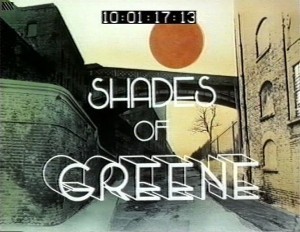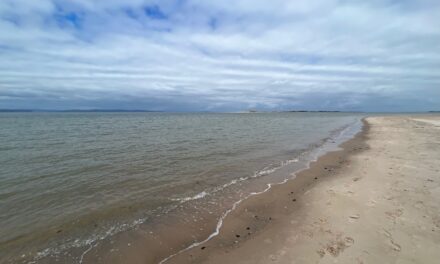It’s become a bit of a truism that, ‘these are strange and dangerous times’. But I am not referring to Covid. I am writing this on the 29th September, and we have found out that the US president is in that much debt that he cannot borrow anymore locally and is thus indebted to foreign powers. And yet, he is still president. We have also heard Boris Johnson admitting to ‘misspeaking’ when he was declaring the new Covid rules for the North East of England. In the same 24 hours, the clip of British Health Secretary Matt Hancock being chided by a prominent British broadcaster resurfaced as many people felt frustrated with the escalating second wave and the ineffectualness of an app that was delivered 3 months late. And yet, they are still officially in charge of the country. And that are just the UK and the USA. There’s some troubling stuff going on elsewhere too – Poland, Belarus, India, Brazil, to name but a few; and that is all outside of Covid.
It seems like a strange coincidence, but it really isn’t, that in this climate I am in the process of prepping a third-year module and rediscovering my love for Raymond Williams. It’s not a coincidence because the module always took as its premise a return to his 1974 Television: Technology and Cultural Form. It was meant to understand television as culture and as cultural, but also as a specific technology. But it is in this climate that I stumbled across this tribute, recorded just a week after Williams’s death, which I would like to encourage you to watch in full:
At one point, Terry Eagleton speaks freely of his experience of encountering Williams at Cambridge, both of them alienated in an environment that they were completely unfamiliar with. And a few minutes later, Stuart Hall speaks about his experience of talking to him about socialism and culture in the same environment and experiencing a sense of incongruousness in light of the fact that they did that in Jesus College. Similarly, Judith Williamson emphasises how encountering Williams’s work meant she was finally connecting to her own culture, rather than having to embrace the snobbishness offered to her by other teachers and writers. In that context, we might return to his book, the book that we often feel is a key foundational text of our subject – i.e. Television. I am sure we all look back at it and consider it in relation to its role in shaping the ways we speak about television, but we thereby undervalue the key role the book had at the time (and really its lasting legacy): being able to speak about television at all and as culture at that. In the chapter on ‘Television and its Forms’ he points to the precedents that gave rise to television’s specific genres. But he ends with this enthusiastic paragraph:
It is ironic to have to say, finally, that one of the innovating forms of television is television itself. So many uses of the medium have been the transmission and elaboration of received forms, or have been dominated by the pressures of overt content, that it is often difficult to respond to some of its intrinsic visual experiences, for which no convention and no mode of description have been prepared or offered. Yet there are moments in many kinds of programme when we can find ourselves looking in what seem quite new ways. To get this kind of attention it is often necessary to turn off the sound which is usually directing us to prepared transmissible content or other kinds of response. What can then happen, in some surprising ways, is an experience of visual mobility, of contrast of angle, of variation of focus, which is often very beautiful. I have known this while watching things as various, in their overt content, as horse-racing, a street interview, an open-air episode in a play or a documentary. To most analysts of television, preoccupied by the declared or directed content, this is, if seen at all, no more than a by-product of some other experience. Yet I see it as one of the primary processes of the technology itself, and one that may come to have increasing importance. And when, in the past, I have tried to describe and explain this, I have found it significant that the only people who ever agreed with me were painters. (pp. 76-77)
What do you think – has it come to pass? Have these images, these accidental records of life behind the intended meaning, framed in what sounds quite avant-garde forms, come to become more important? It seems not to me. But his enthusiasm for seeing that which is marginalised in and on television seems to be a perfect metaphor for his other work: as the panel comes to agree in the tribute to him, Williams was fascinated with that which was positioned at the borders, at the not-quite-inside.
However, the not-quite-inside or the emerging is experientially that which he – and the panel guests – know best. It is life lived by those of us who are precisely feeling alienated or experiencing a sensation of incongruousness at the thought of being able to discuss television as television at Cambridge or Oxford (and indeed many other places) – still. But what strikes me is that, perhaps, we have lost the feeling of alienation. And to my mind, that might be a problem.
Let me explain by recourse to my own experience in a fashion that Williams, I hope, would not disapprove of. I started my university experience in the 1990s at Heidelberg University. I left within the space of weeks because I felt out of place, alienated. There was no reason for this. My sister was studying there, and she was perfectly happy. But I was trying to study English (and I wanted to study film, but couldn’t because Heidelberg didn’t offer such ‘vulgar’ subjects), and I found myself, in the way that Williamson described her own experience, unable to connect to the cultural precedents provided by the faculty. The focus was on things bigger, apparently, than myself, apparently timeless. The focus on these bigger, apparently ‘universalising’ values has been rightly widely criticised, not least by many of us (see for example Hills, 2011). But in this context, I want to point to an article by Helen Piper (2016) that also engaged with the same debate: Piper precisely emphasises the opposition between an understanding of television as aesthetics – supposedly universal values that transgress (national) boundaries but as she argues are often based around hegemonic masculine and American values – and culture which she understands strongly as lived experience, following in the tradition of cultural materialism that Williams was so central to. And I too, when I was trying to study at Heidelberg, wanted to feel the dirt under my fingernails, in the way that Jane Eyre (Brontë, 1847) had made me feel, whilst questioning what schooling or education might actually mean as Supertramp (1974) had suggested. I was aware that these were old, but they spoke to me, like nothing I had encountered in my own language had. But at Heidelberg, English became another German: a language of poets whose starry skies might as well adorn Venus. I left and went to a different university and studied media, including Adorno, Horkheimer and Benjamin, who, although not speaking to my optimistic view of the media, at least gave me the feeling that they had watched some of the films that I found so interesting. But then, one day, I also came across another book, a little one about Dallas which I can now see following in Williams’s footsteps. It shook my world. It was the reason that made me come to the UK, it was the reason that made me study TV (and see it as a legitimate subject of study), and that eventually put me into the path of studying television as culture.
But even during the PhD, there were moments of frisson. Studying TV at Glasgow University wasn’t problematic. But it wasn’t studying film. That difference was more pronounced at other places: television was perceived as legitimate primarily to those who studied television. I felt uncomfortable, alien, but was too junior to address this. And so, I ran again: to a university where I am amongst my peers. I feel passionately about being able to provide what I hope is an excellent education to students who would feel similarly alienated at Heidelberg, who, like me, are part of the first generation to go to university, whose parents and grandparents remain slightly intimidated when they meet a professional. But whilst my motivations might be noble, my comfort is not in Williams’s spirit. Hall and his peers were experiencing a sense of incongruousness at discussing socialism, class and culture at Jesus College; Williams wasn’t: he insisted on sharing this space with the elite that prevails in these places.
And this was and is Williams’s radicalism: he brings into the public, and this includes to the notice of the elite, an experiential culture that is normally marginalised. He fundamentally troubles the narratives of elitism by insisting on his place amongst them whilst remaining the Welsh European in an English institution. And by doing that, he troubles narratives of normality that are actual elitism. By allowing himself to be in spaces that are alienating, he unsettles the status quo and exposes elitism as such. And this fundamentally undermines the power of the elite: it makes them visible as privileged and as different.
In a week, in which the BBC’s editorial independence is severely under threat and teachers are being told to not teach anything anti-capitalist (which would relegate Williams out of the class room), and indebtedness to foreign powers is likely to be spun as smart tax avoidance, it is important that the narratives of the elite are being made visible – viscerally visible – as those of the privileged: we need to disrupt with the lived realities of our cultures. And this might require us to demand our places next to those whom we might feel alienated (and worse) by: it’s time to get uncomfortable.
Elke Weissmann is Reader in Film and Television at Edge Hill University. She is currently considering changing this to Reader in Television and Film, however. Her books include Transnational Television Drama (Palgrave) and the edited collection Renewing Feminisms (I.B.Tauris) with Helen Thornham. She sits on the board of editors for Critical Studies in Television. She migrated to the UK in 2002 after realising that German television was as bad as she remembered.






